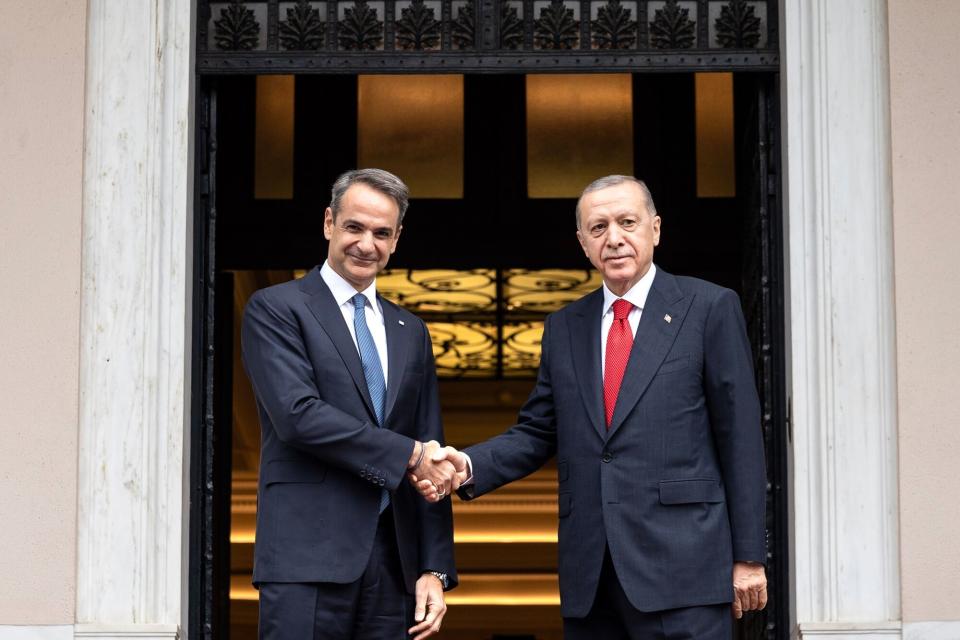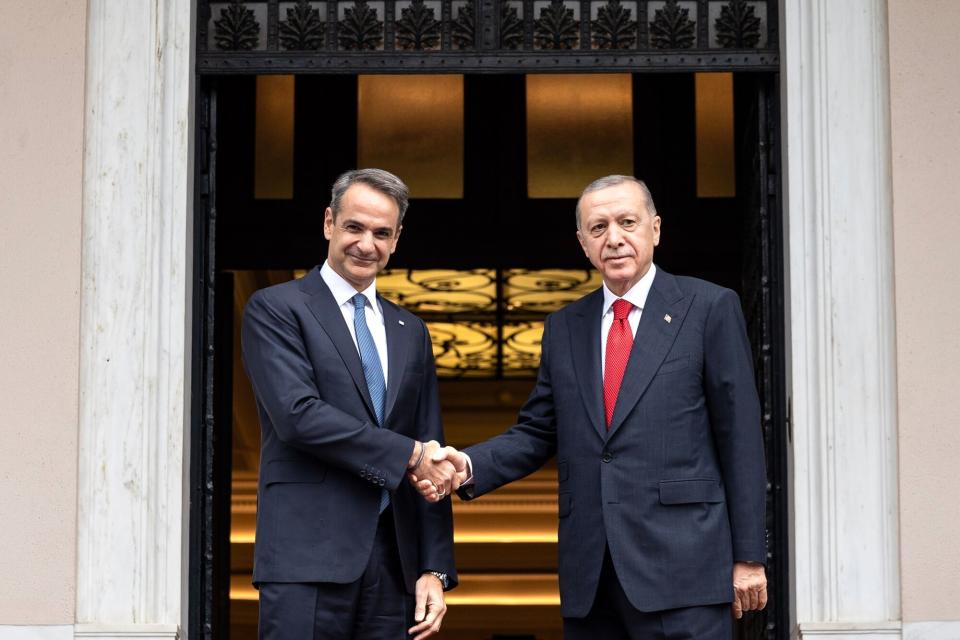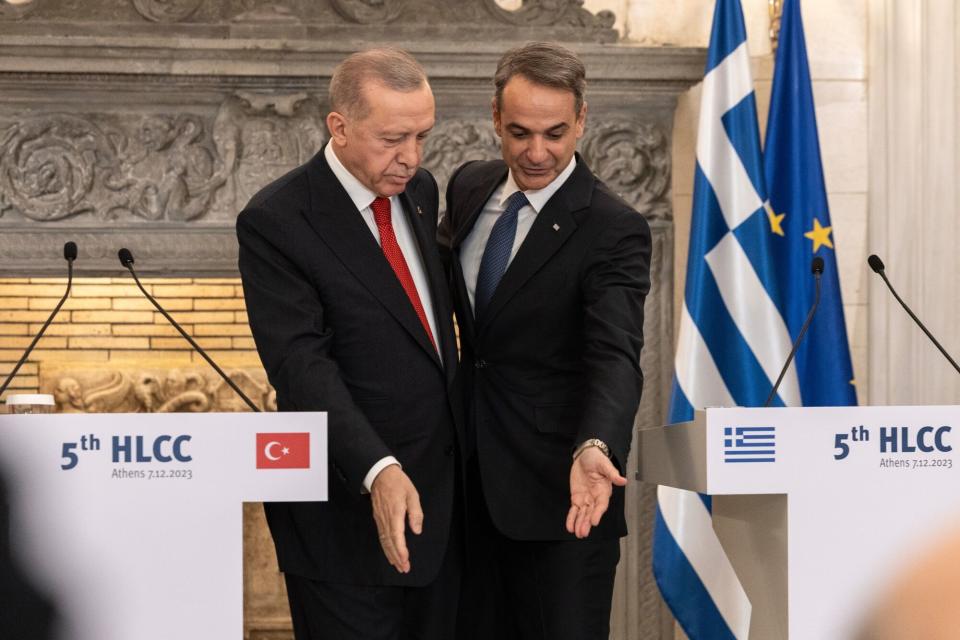Greece and Turkey Agree on Warmer Ties After Years of Tensions
- Oops!Something went wrong.Please try again later.
(Bloomberg) -- Greece and Turkey agreed to expand ties in tourism and culture, seeking to turn the page on years of tensions between the NATO allies over maritime borders and the status of Cyprus.
Most Read from Bloomberg
Carlyle’s Rubenstein Is in Talks to Acquire Baltimore Orioles
Americans Rush to Portugal Ahead of Changes to Expat Tax Breaks
“In recent months we have been walking on a calmer path,” Greek Prime Minister Kyriakos Mitsotakis said at a press conference with Turkish President Recep Tayyip Erdogan, who was visiting Athens for the first time in six years. The countries’ differences “should not automatically produce crises,” he added.
Mitsotakis said he plans to visit Turkey next spring as part of an agreement between the two leaders to increase contacts. Erdogan expressed a desire to enhance connections in the tourism and cultural sectors. He also underlined the importance of cooperation against terrorism.
“While there could be disagreements even between two siblings, it is very natural for two neighbors to have disagreements,” Erdogan said. “The main thing is to have the will to solve these.”
The two leaders are both committed to mending a rift which saw their countries go near to a military confrontation three years ago, in an eastern Mediterranean region where disputes continue to threaten geopolitical stability.
Mitsotakis and Erdogan decided to restart the High-Level Cooperation Council, which includes a series of ministerial gatherings, on the sidelines of a NATO summit in July. They met again in September in New York. The Council started in 2010 but its last session was in 2016.
Both leaders agreed that the value of bilateral trade could reach €10 billion ($10.8 billion) within five years.
The two countries signed a friendship declaration which, while not legally binding, is seen as politically significant in maintaining good ties. The declaration includes a commitment to abstain from any statements or actions that deviate from its’ framework.
The meeting also saw an announcement of a Greek decision to make it easier for Turkish citizens to visit some of the Aegean islands with a temporary visa. The initiative, which would revive an earlier procedure, would further boost the tourism sector in the Greek islands and strengthen economic ties between the two countries.
Memorandum of Understanding
During the visit, the two countries’ export credit agencies signed a memorandum of understanding to cooperate on guarantees and reinsurance for Greek and Turkish firms operating abroad.
Long-running tensions between the two countries include the issue of Cyprus, which was effectively partitioned in 1963 when fighting erupted between its two main groups: Greek and Turkish-speaking Cypriots. It was fully divided in 1974 after Turkey intervened, capturing the northern third of the island and saying it intended to protect the minority Turkish Cypriots following an Athens-backed coup by supporters of union with Greece.
Greece and Cyprus back a United Nations position to reunify the island on the basis of a bi-zonal federation. Turkey favors a two-state solution.
The Cyprus dispute weighs heavily at a time when Russia’s war in Ukraine has threatened energy security in the region. Progress would allow the export of eastern Mediterranean oil and gas to Turkish markets and Europe via a pipeline from the island to Turkey.
On the issue of maritime borders between the two countries, Greece insists on application of the international law of the sea and is ready to take the issue to international courts if necessary. The discord brought the two NATO member states to the brink of military confrontation in 2020.
“The next phase of the political dialog, when the conditions are mature, can be the approach to the delimitation of a continental shelf and an exclusive economic zone in the Aegean and the Eastern Mediterranean,” Mitsotakis said.
--With assistance from Ugur Yilmaz, Richard Bravo and Gina Turner.
Most Read from Bloomberg Businessweek
Salesforce Signals the Golden Age of Cushy Tech Jobs Is Over
How the Biggest Boutique Fitness Company Turned Suburban Moms Into Bankrupt Franchisees
Hottest Job in US Pays $80,000 a Year, No College Degree Needed
At World Central Kitchen, José Andrés Is in the Middle of a Mess
SpaceX’s Colossal Starship Sets Pace in Race to Build Larger Rockets
©2023 Bloomberg L.P.




